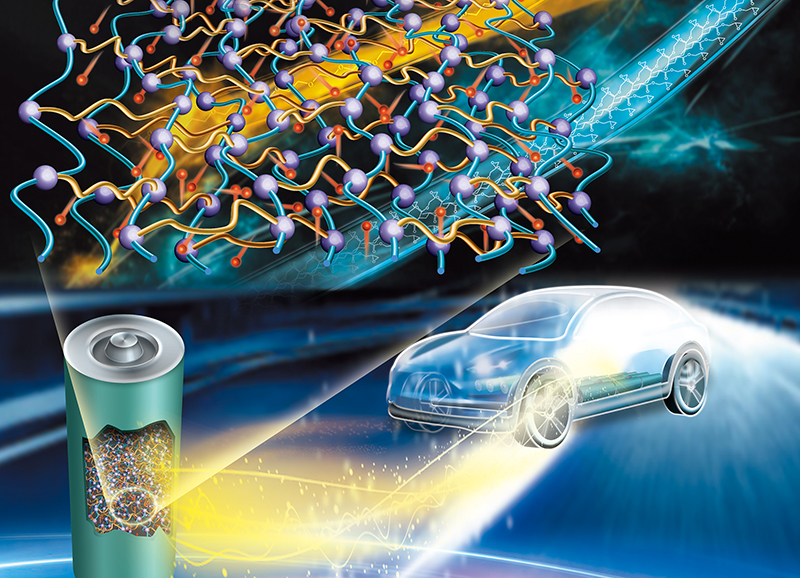 The novel nanoscale network structure of these solid polymer electrolytes dramatically improved network mechanical properties, which was demonstrated to be critical to lithium dendrite resistance.
The novel nanoscale network structure of these solid polymer electrolytes dramatically improved network mechanical properties, which was demonstrated to be critical to lithium dendrite resistance.
The high charge density, long life, and light weight of lithium batteries make them an ideal power source for a wide variety of electronics, from portable devices to electric vehicles, critical need applications such as medical devices, remote situations where long battery life is crucial, and devices with heavy electrical demands such as digital cameras.
Despite their promise, lithium batteries are plagued by dendrites, spiky crystal structures that spring up like weeds during charging, causing short-circuits and posing a serious safety hazard. Currently available methods to prevent dendrite growth create limitations on the amount of energy lithium batteries can provide.
As recently reported in the scientific journal Nano Letters, researchers in Professor Christopher Li’s Soft Materials Group have developed a new design of solid polymer electrolytes (SPEs) that offers a promising approach to realizing more efficient, dendrite-free lithium batteries.
Electrolytes serve as conductive pathways within lithium batteries. “SPEs avoid the flammable solvent used in traditional liquid electrolytes and are more effective in hindering irregular lithium deposition, or dendrites, that could short circuit the cell,” Li said. “This could lead to safer lithium batteries and improve cell capacity and cycling efficiency.”
Taking lessons from rubber chemistry, Li’s team developed a series of comb-chain crosslinker-based SPEs (ConSPEs) using a preformed polymer as the multifunctional crosslinker. The high-functionality crosslinker increased the connectivity of nanosized cross-linked domains, which dramatically improved toughness and superior lithium dendrite resistance, while also dramatically improving stability. Their results demonstrated that ConSPEs are promising for high-performance and dendrite-free lithium batteries.
Read the full paper here: https://doi.org/10.1021/acs.nanolett.0c03033
This research was funded by the National Science Foundation.